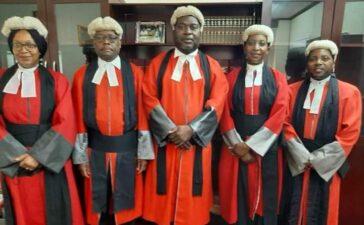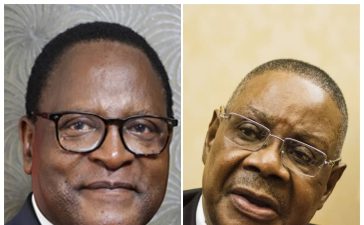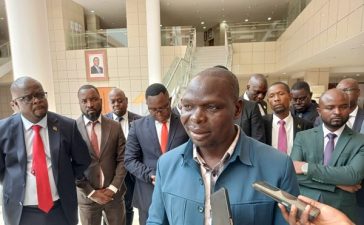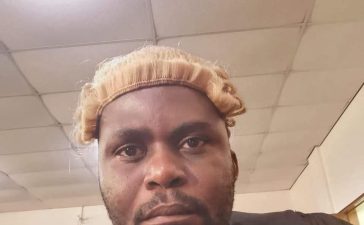It’s official—President Lazarus Chakwera is not just talking reform; he’s doing resurrection. With a bold declaration to morph the National Economic Empowerment Fund (NEEF) into a full-fledged K1 trillion development bank, Chakwera is reaching deep into the archives of Kamuzu Banda’s legacy, dusting off the blueprint of a nation built by its own hands—and daring to rebuild what others wrecked.
At the 35th Malawi International Trade Fair in Blantyre, President Chakwera dropped the bombshell: in the next five years, his administration will channel over K1 trillion in business capital to empower women and the youth—Malawi’s sleeping economic giants. And he’s not going it alone. The African Development Bank is already warming up to support this nation-building mission.
This isn’t just about turning NEEF into a bank—it’s about turning a page.
“We’ve already disbursed over K300 billion to establish 100,000 youth- and women-led businesses. But that was just Act I,” declared Chakwera. “Act II is turning NEEF into a trillion-kwacha development bank so no Malawian with a business dream is left behind.”
𝐊𝐚𝐦𝐮𝐳𝐮 𝐁𝐮𝐢𝐥𝐭 𝐈𝐭. 𝐃𝐏𝐏 𝐒𝐨𝐥𝐝 𝐈𝐭. 𝐂𝐡𝐚𝐤𝐰𝐞𝐫𝐚 𝐢𝐬 𝐑𝐞𝐜𝐥𝐚𝐢𝐦𝐢𝐧𝐠 𝐈𝐭.
The transformation of NEEF into a development bank is a full-circle moment—because it was Kamuzu Banda, Malawi’s founding father, who planted the first seeds of a state-owned financial future by establishing Malawi Savings Bank (MSB).
MSB was never meant to die. It was meant to serve. But under the Disaster Progressive Party (DPP)—sorry, Democratic Progressive Party regime—whose tenure in power reads more like a looters’ diary than a governance manual, the bank didn’t just die—it was murdered, stripped, and sold in a shameless fire sale to businessman Thom Mpinganjira. And who was orchestrating this daylight robbery? None other than Joseph Mwanamvekha, then Finance Minister and MSB’s top man, who now dares to comment from the sidelines, warning about governance risks in government-led banks. Irony just died.
𝐓𝐡𝐞 𝐌𝐚𝐧 𝐖𝐡𝐨 𝐁𝐨𝐮𝐠𝐡𝐭 𝐚 𝐁𝐚𝐧𝐤—𝐓𝐡𝐞𝐧 𝐓𝐫𝐢𝐞𝐝 𝐭𝐨 𝐁𝐮𝐲 𝐚 𝐍𝐚𝐭𝐢𝐨𝐧
Let’s not forget who Mpinganjira really is. In 2019, during Malawi’s darkest democratic hour, this same man—who now runs FDH on the grave of MSB—attempted to bribe Constitutional Court judges to uphold Peter Mutharika’s stolen presidency.
But the judges didn’t buckle. They didn’t bow. They busted him, exposed the plot, dragged him before the law, convicted and thrown into jail. But justice in Malawi has a twist. While Mpinganjira was sentenced and briefly tasted the air at Chichiri Prison, he is currently out on bail pending appeal—a free man walking, despite trying to choke Malawi’s democracy with his billions.
And yet the same DPP that sold the national bank and tried to buy an election now wants another shot at power? Malawians must have very short memories if they allow that.
𝐂𝐡𝐚𝐤𝐰𝐞𝐫𝐚’𝐬 𝐁𝐚𝐧𝐤, 𝐌𝐚𝐥𝐚𝐰𝐢’𝐬 𝐅𝐮𝐭𝐮𝐫𝐞
Unlike commercial banks that suffocate borrowers with cutthroat interest and short payback windows, Chakwera’s development bank will offer low interest, longer repayment terms, and a shot at real prosperity. It’s about making business capital available for the poor, not just the privileged.
Treasury Secretary Betchani Tchereni confirmed that the government is locking in support from AfDB. Neef’s transformation won’t just be a name change—it’ll be a structural revolution.
𝐖𝐡𝐲 𝐂𝐡𝐚𝐤𝐰𝐞𝐫𝐚 𝐌𝐮𝐬𝐭 𝐒𝐭𝐚𝐲 𝐭𝐡𝐞 𝐂𝐨𝐮𝐫𝐬𝐞
Malawi has seen enough betrayal. Enough “for sale” signs slapped on national treasures. Enough of rich men trying to buy their way into history. With this trillion-kwacha move, Chakwera is charting a different path—a path of reclamation, restoration, and reconstruction.
This is not about politics. It’s about principle. It’s about never letting the DPP near the steering wheel again. Because when they had the keys, they drove the nation straight into the ditch.
With Chakwera, Malawi is not for sale. It’s under construction.













